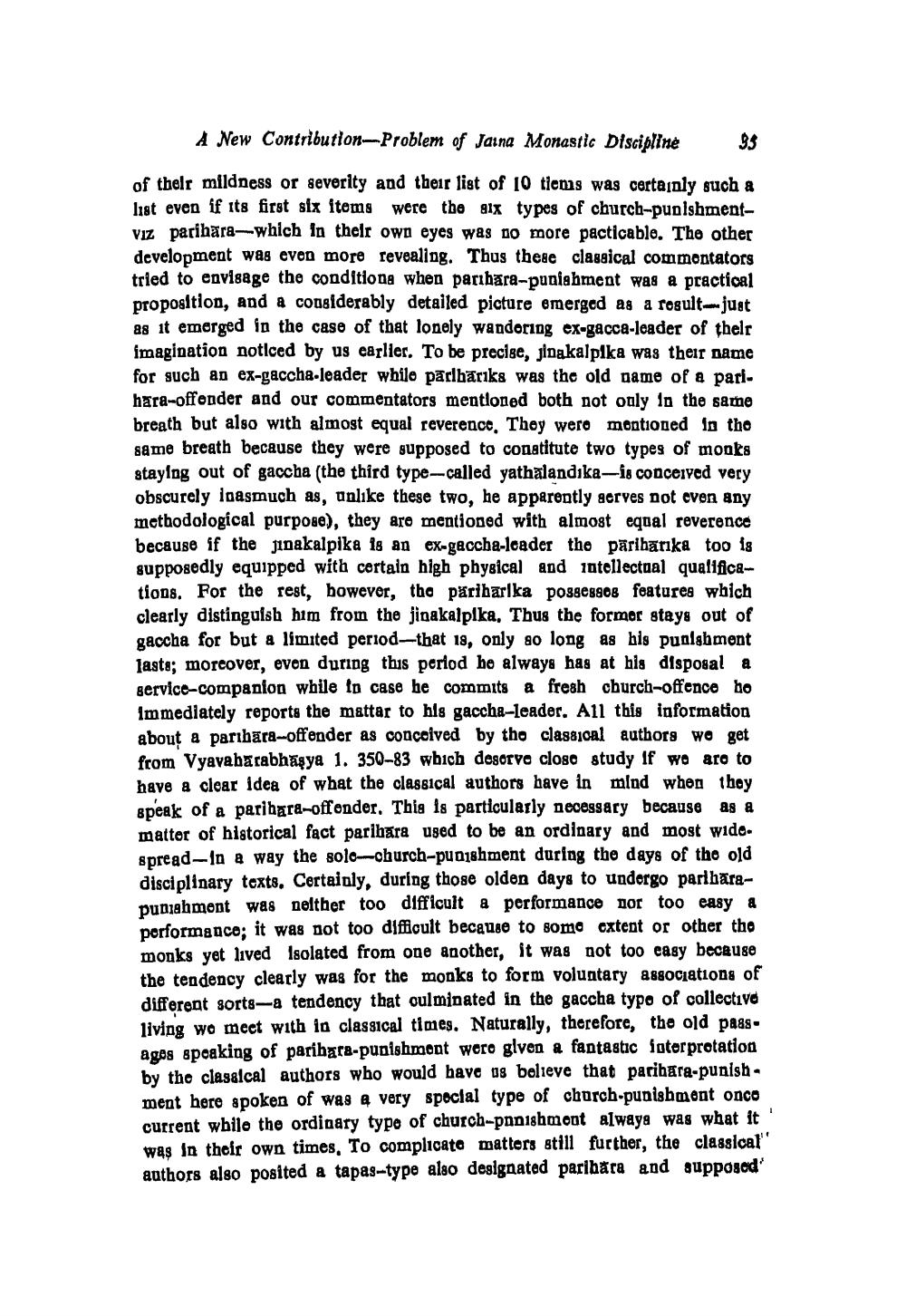________________
A New Contribution-Problem of Jaina Monastic Discipline
of thelr mildness or severity and their list of 10 tiens was certainly such a list even if its first six items were the aux types of church-punishmentVIZ paribara--which in their own eyes was no more pacticable. The other development was even more revealing. Thus these classical commontators tried to envisage the conditions when parihara-punishment was a practical proposition, and a considerably detailed picture emerged as a rogult..just as it emerged in the case of that lonely wandering ex-gacca-leader of thelr imagination noticed by us earlier. To be precise, jinakalpika was their name for such an ex-gaccha-leader while pācbariks was the old name of a parihara-offonder and our commentators mentioned both not only in the same breath but also with almost equal reverence. They wero montioned in the same breath because they were supposed to conatitute two types of monts staying out of gaccha (the third type--called yathalandıka-is conceived very obscurely inasmuch as, unlike these two, he apparently acrves not even any methodological purpose), they are mentioned with almost equal reverence because if the jinakalpika is an ex-gaccha-leader the pariharıka too is supposedly equipped with certain high physical and intellectual qualifications. For the rest, however, the päriharika posse8808 features which clearly distinguish him from the jipakalplka, Thus the former stays out of gaccha for but a limited period—that is, only so long as his punishment lasts; morcover, evon during this period be always has at his disposal a service-companion while in case he commits a fresh church-offence bo Immediately reports the mattar to his gaccha-leader. All this information about a parıbara-offender as conceived by the classical authors wo get from Vyavaharabhagya 1. 350-83 wbich desorve clogo study If we are to have a clear idea of what the classical authors have in mind when they speak of a parihara-offonder. This is particularly necessary because as a matter of historical fact paribara used to be an ordinary and most wido. spread-In a way the solo-church-punishment during the days of the old disciplinary texts. Certainly, during those olden days to undergo parlharapunjabment was nolther too difficult & performance nor too easy a performance; it was not too difficult because to some extent or other tho monks yet lived isolated from one another, it was not too easy because the tendency clearly was for the monks to form voluntary associations of different sorts-a tendency that oulminated in the gaccha typo of collective living wo meet with 10 classical times. Naturally, therefore, the old passagos spoaking of paribara-punishmont were glven a fantastic foterprotation by the classical authors who would have us believe that paribara-punishment here spoken of was a very special type of church-punishment onco current while the ordinary type of church-panishment always was what it' was in their own times, To complicate matters still further, the classical authors also posited a tapas-type also designated parihara and suppogod'




